Two long parallel conducting rails are placed in a uniform magnetic field. On one side, the rails are connected with a resistance R. Two rods MNandM'N' each having resistance r are placed as showing in Fig. Now on the rods MNandM'N' forces are applied such that the rods move with constant velocity v.
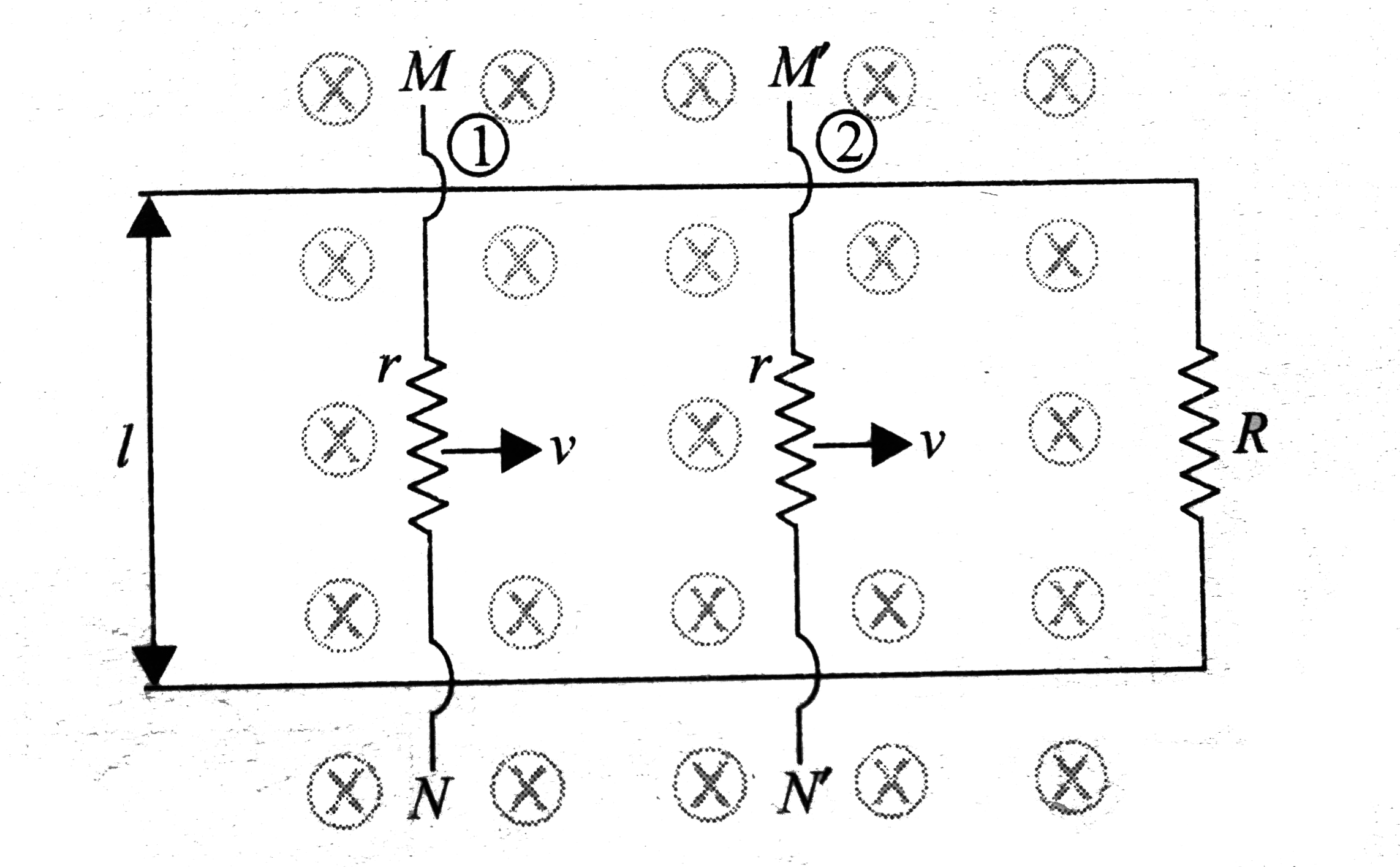
(i). The current flowing through resistance R if the rod Mn moves toward left and the rod M'N' moves toward the right is
(a) BlvR+(r/2)
(b) 2BlvR+r
( c) zero
(d) 3Blv2(R+r)
The correct Answer is:C
(i) ( c). Case I
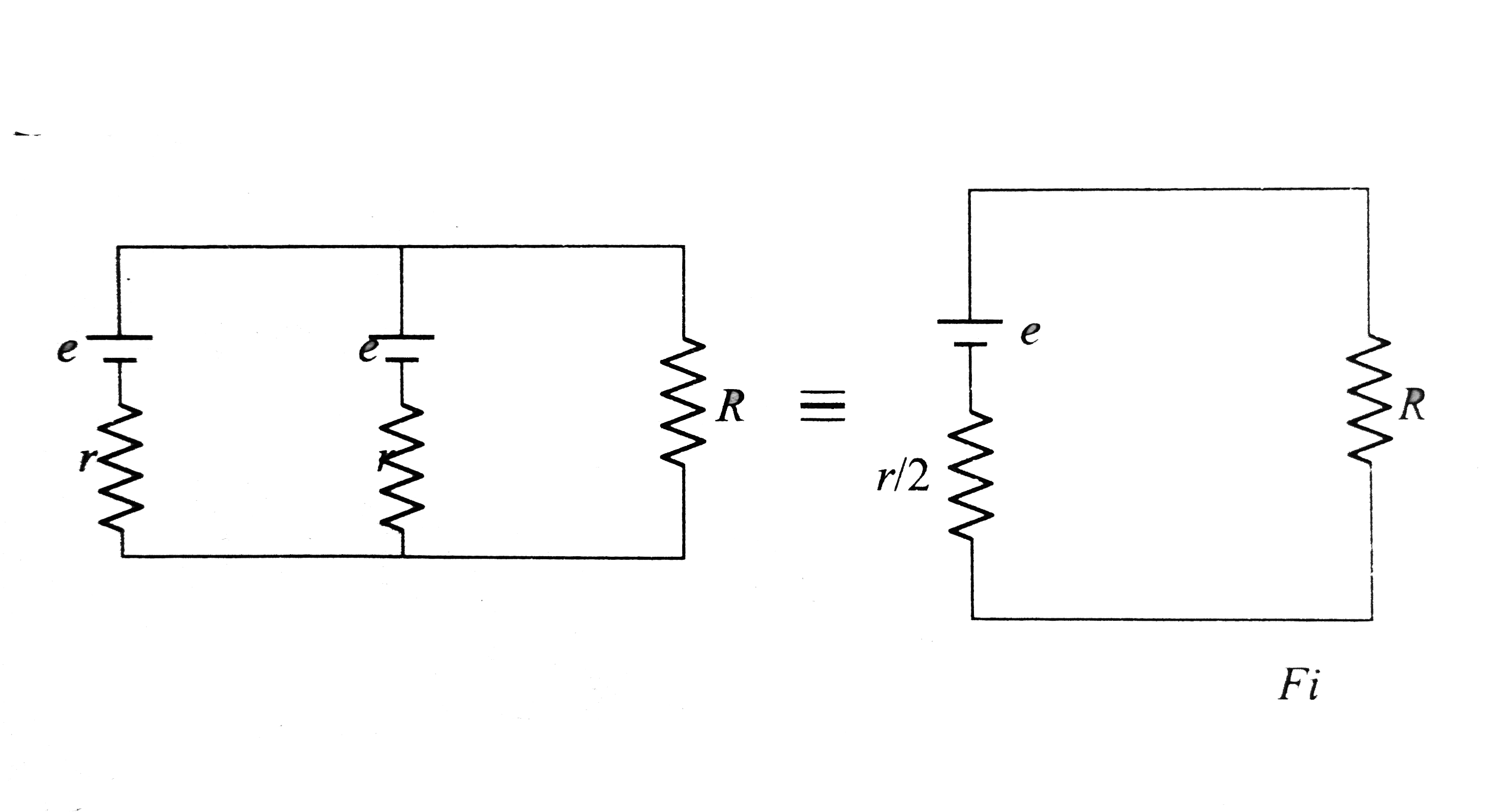
I=eR+(r/2)=BlvR+(r/2)
Case II
−(I1−I')R−I1r+e=0 For loop (1) (i)
r(I−(1)+U')=2e For loop (2) (ii)
Solve to get, I1=I'=eR
Hence current in 'R' is zero. ltbr> 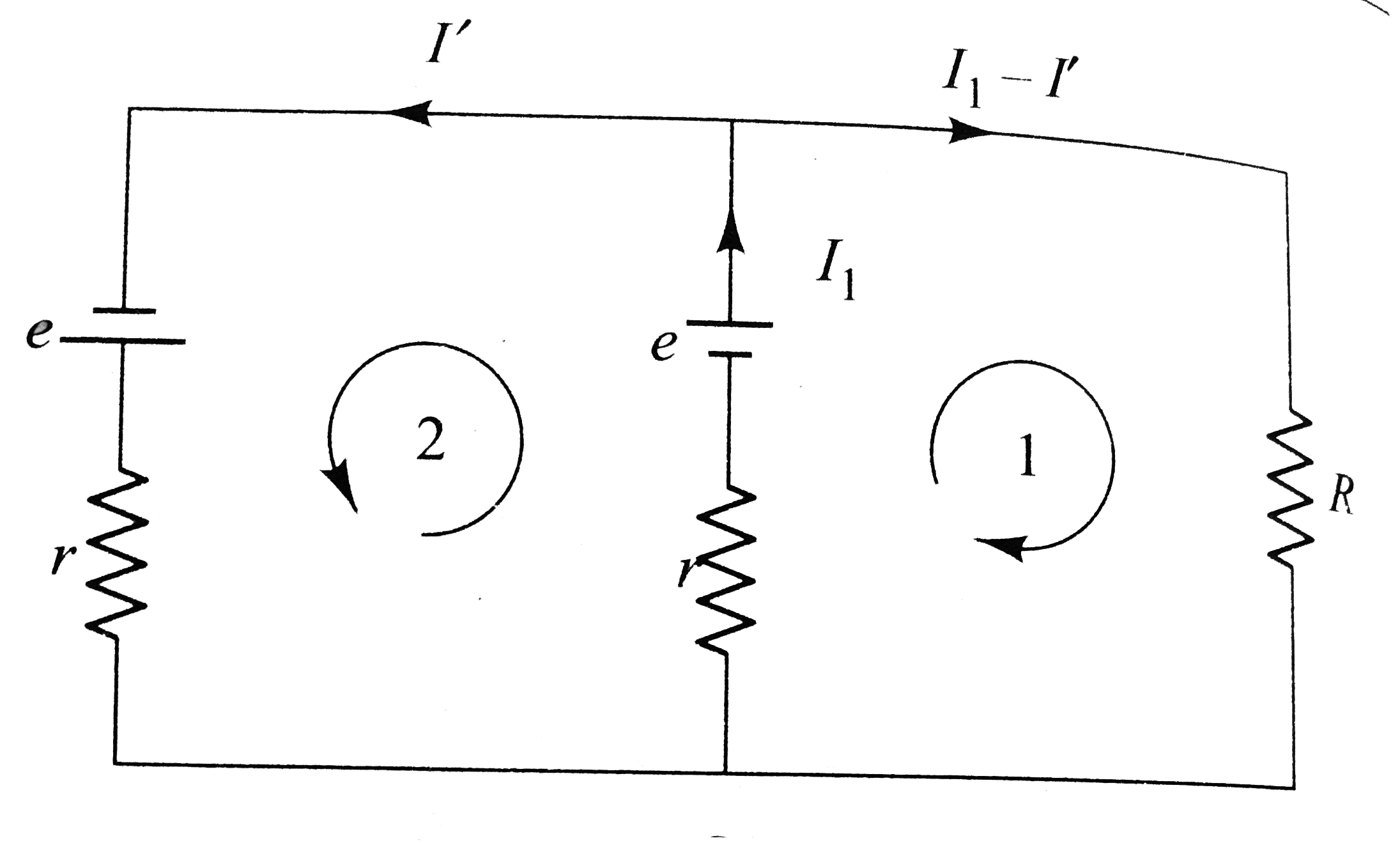
(ii). e1=Blv1,e2=Blv2

For (1) → e2=(I−I1+I2)r2+I2R2
For (2) → e1+e2=(I−I1+I2)r2+Ir1
For (3) → e1=Ir1+I1R1
Solve to get I1=BlR2(v2r2−v2r1)r1R2(r1+r2)+r2r1(R1+R2)
Topper's Solved these Questions
- ELECTROMAGNETIC INDUCTIONBOOK - CENGAGE PHYSICSCHAPTER - ELECTROMAGNETIC INDUCTIONEXERCISE - Exercises Integer
9 Videos
- ELECTROMAGNETIC INDUCTIONBOOK - CENGAGE PHYSICSCHAPTER - ELECTROMAGNETIC INDUCTIONEXERCISE - Archives Fill In The Blanks
3 Videos
- ELECTROMAGNETIC INDUCTIONBOOK - CENGAGE PHYSICSCHAPTER - ELECTROMAGNETIC INDUCTIONEXERCISE - Exercises Asserton - Reasoning
8 Videos
- ELECTROMAGENTIC INDUCTIONBOOK - CENGAGE PHYSICSCHAPTER - ELECTROMAGENTIC INDUCTIONEXERCISE - QUESTION BANK
40 Videos
- ELECTRON,PHONTS,PHOTOELECTRIC EFFECT & X-RAYSBOOK - CENGAGE PHYSICSCHAPTER - ELECTRON,PHONTS,PHOTOELECTRIC EFFECT & X-RAYSEXERCISE - dpp 3.3
15 Videos
Similar Questions
A conducting rod is moved with a constant velocity v in a magnetic field. A potential difference appears across the two ends
View SolutionA conductor rod AB of mass m slides without friction over two long conducting rails separated by a distance (Fig) At the left end the raidls are interconnected by a resistance R. The system is located in a unifrom magnetic fileld perpendicular to the plane of the loop. At the moment t=0 the rod AB starts moving to the right with an initial velocity v0. Neglecting the resistances of the rails and the rod AB, as wellas the self -indcuctance, find:
(a) the distance covered by the rod until it comes to a standsill,
(b) the amount of heat generated in the resitance R during this process.

View Solution
Knowledge Check
Two long parallel conducting rails are placed in a uniform magnetic field. On one side, the rails are connected with a resistance R. Two rods MNandM'N' each having resistance r are placed as showing in Fig. Now on the rods MNandM'N' forces are applied such that the rods move with constant velocity v.
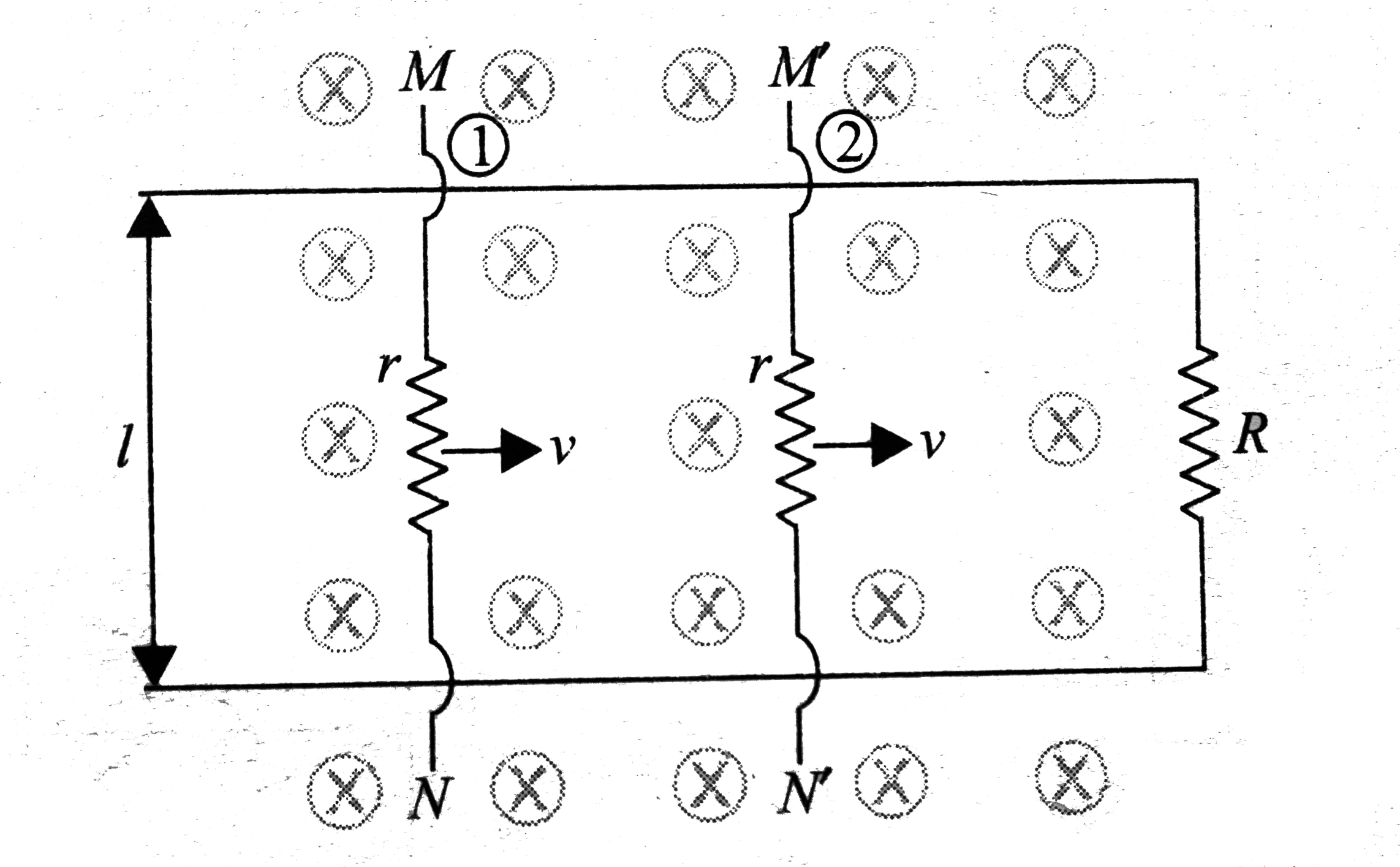
The current flowing through resustance R if both the rods move with the same speed v toward right isA(a) BlvR+(r/2)B(b) 2BlvR+rC( c) zeroD(d) 3Blv2(R+r)Two long parallel conducting rails are placed in a uniform magnetic field. On one side, the rails are connected with a resistance R. Two rods MNandM'N' each having resistance r are placed as showing in Fig. Now on the rods MNandM'N' forces are applied such that the rods move with constant velocity v.
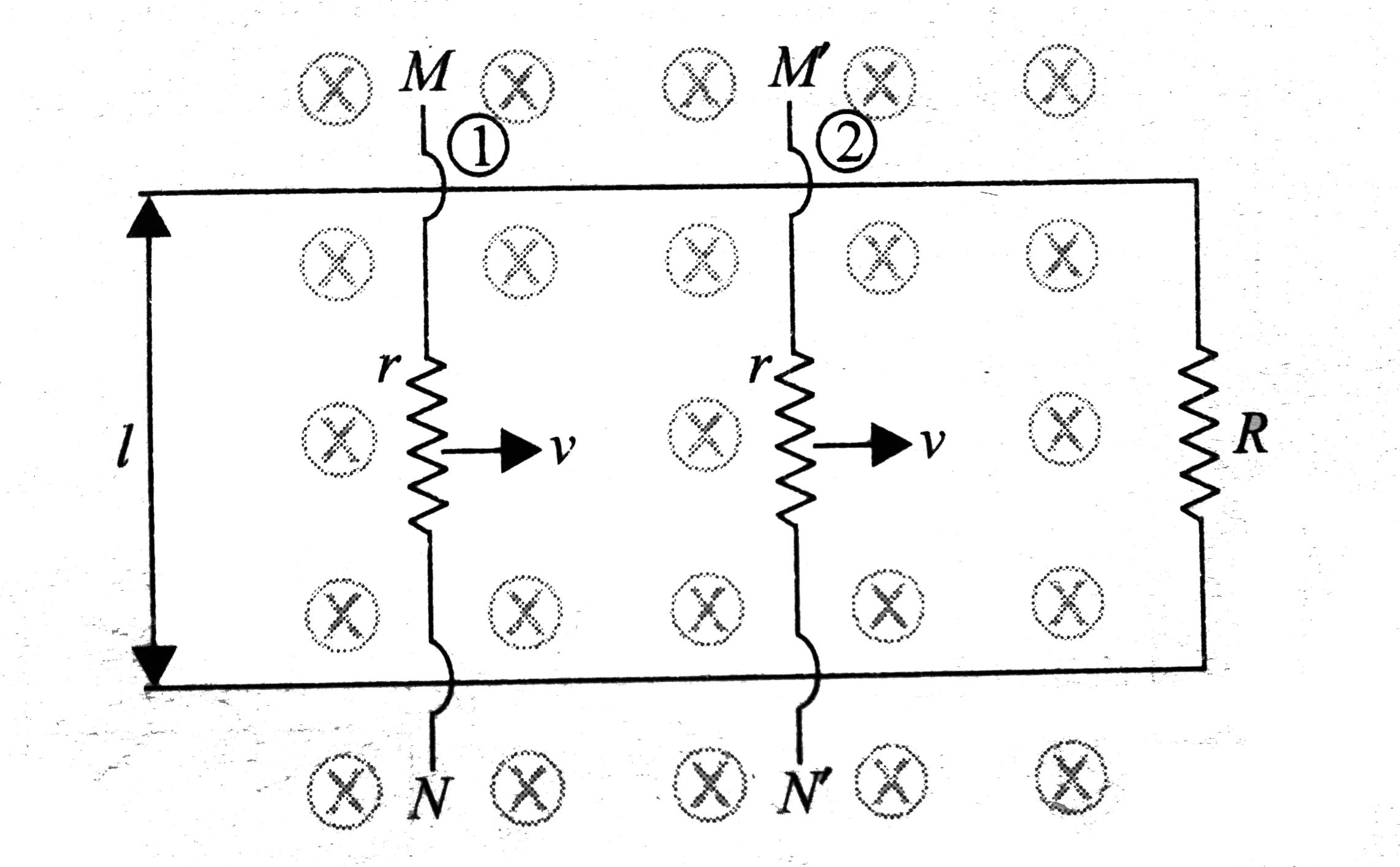
(ii). If in the previous problem resistance of values R1andR2 are connected on both ends as shown in Fig. current I, flowing through resistance R1 is given byA(a) BlR2(v1r2−v2r1)R1R2(r1+r2)+r2r1(R1+R2)B(b) BlR2(v1r2+v2r1)R1R2(r1+r2)+r2r1(R1+R2)C( c) BlR2(v1r2−v2r1)R1R2(r1−r2)+r2r1(R1−R2)D(d) BlR2(v1r2−v2r1)R1R2(r1+r2)−r2r1(R1+R2)A conducting rod of length l is moving in a transverse magnetic field of strength B with veocity v. The resistance of the rod is R. The current in the rod is
ABlvRBBlvCzeroDB2v2l2R
Two long parallel horizonal rails , a distance d apart and each having a resistance λ per unit length are jointed at one end by a resitance R. A perfectly conducting rod MN of mass m is free to slide along the rails . A variable force F is applied to the rod MN , such that ,as the rd moves, a constant current i flows through R.
(a) Find the velocity v and the force F as function of the function of the distance x of the rod from R.
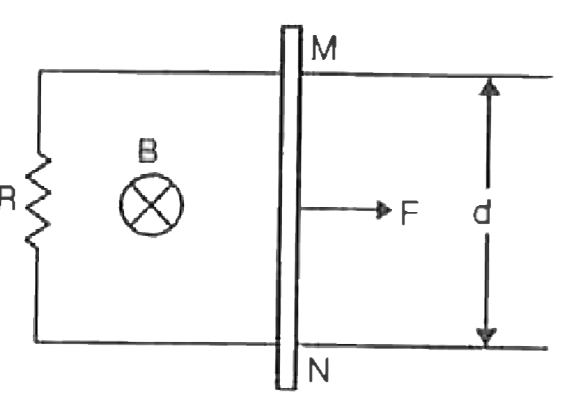
(b) What fraction η of the work done by F per second in converted into heat ?
View SolutionFigure shows a conducting rod PQ in contact with metal rails RP and SQ, which are 0.25m apart in a uniform magnetic field of flux density 0.4T acting perpendicular to the plane of the paper. Ends R and S are connected through a 5Ω resistance. What is the emf when the rod moves to the right with a velocity of 5ms−1 ? What is the magnitude and direction of the current through the 5Ω resistance? If the rod PQ moves to the left with the same speed, what will be the new current and its direction?
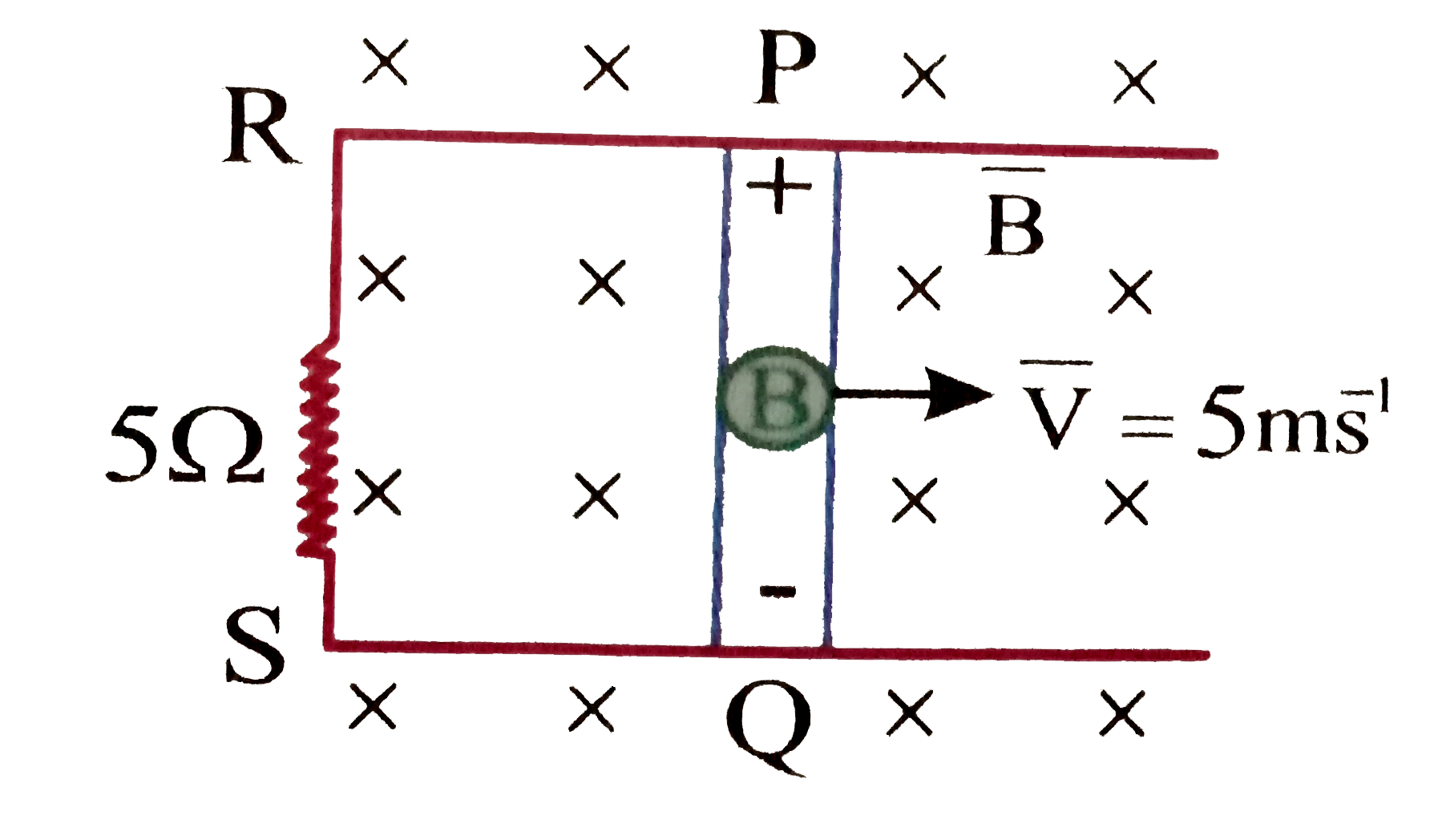
View SolutionA rod having length l and resistance R is moving with velocity v on a π shape conductor. Find the current in the rod.
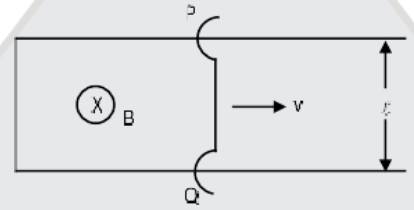
View SolutionA wire cd of length l and mass m is sliding without friction on conducting rails ax and by as shown. The verticle rails are connected to each other with a resistance R between a and b. A uniform magnetic field B is applied perpendicular to the plane abcd such that cd moves with a constant velocity of
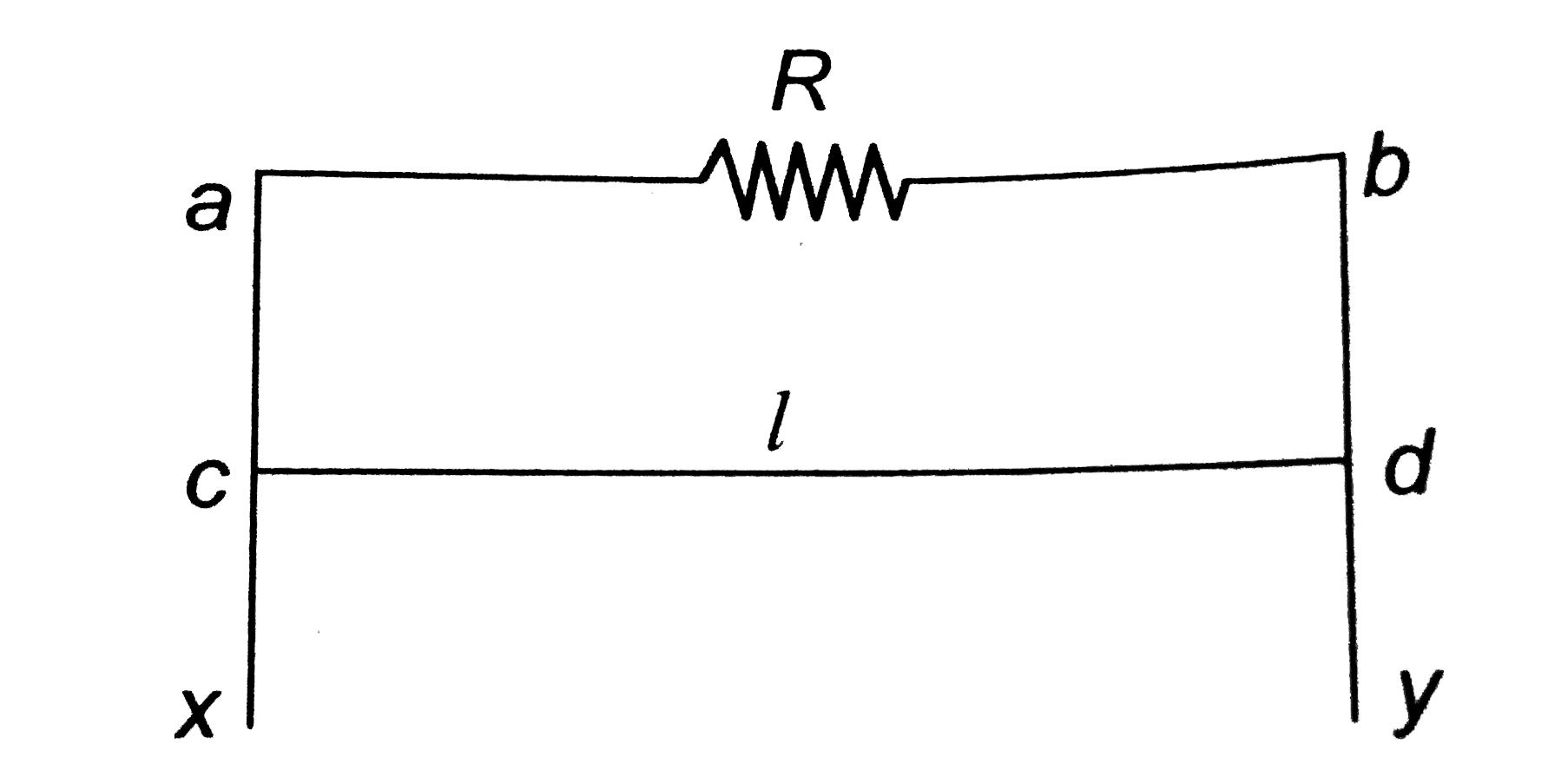
View SolutionA rod with resistance R lies across frictionless conducting rails in a constant uniform magnetic field →B, as shown in the following figure. Assume the rails have negligible resistance. The magnitude of the force that must be applied by a person to pull the rod to the right at constant speed v is
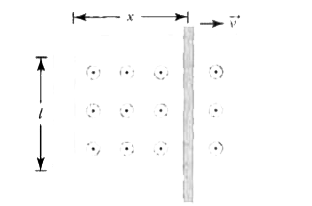
View Solution
